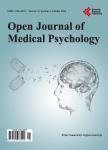Body-focused Anxiety in Women: Associations with Internalization of the Thin-ideal, Dieting Frequency, Body Mass Index and Media Effects
Body-focused Anxiety in Women: Associations with Internalization of the Thin-ideal, Dieting Frequency, Body Mass Index and Media Effects作者机构:Bond University Australia
出 版 物:《Open Journal of Medical Psychology》 (医学心理学(英文))
年 卷 期:2013年第2卷第4期
页 面:17-24页
学科分类:1002[医学-临床医学] 100214[医学-肿瘤学] 10[医学]
主 题:Body-focused Anxiety Internalization of the Thin-ideal BMI Dieting
摘 要:Exposure to media that portrays thin women as ideal and attractive can lead to women internalizing the thin ideal, which results in incorporating societal standards of thinness into belief systems. Internalization of the thin-ideal is associated with numerous detrimental effects on women, including decreased levels of self-esteem and increased levels of body-focused anxiety, negative emotions and disordered eating. The present study utilized a sample of women (N = 208) aged between 18 and 67 years (M = 29.44, SD = 13.08) to examine the relationship between internalization of the thin- ideal, body-focused anxiety, body mass index (BMI), and dieting frequency. Correlational, regression and mediation analyses conducted on the data showed that internalization of the thin-ideal, BMI and dieting frequency significantly contributed to body-focused anxiety in women. In addition, body-focused anxiety fully mediated the relationship between internalization of the thin-ideal and dieting frequency among women. BMI did not moderate the relationship between internalization of the thin-ideal and body-focused, indicating that women who internalize the thin-ideal are less vulnerable to dieting unless experiencing body-focused anxiety. The results of the current study enhance our understanding of the relationship between internalization of the thin-ideal, body-focused anxiety, BMI, and dieting frequency among women. Clinical implications will be discussed.



